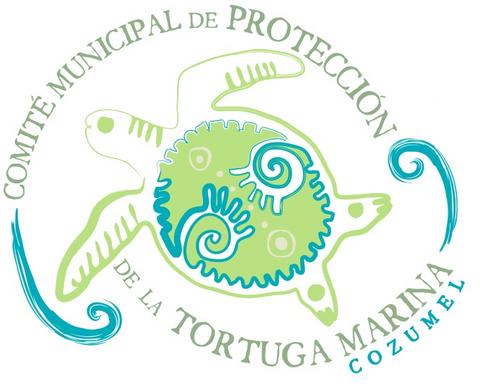
Cozumel is fortunate to play host to thousands of sea turtles coming
ashore to nest each year.
During the nights of May through September, on the Eastern shore of
the island, two species of sea turtles come ashore to lay their eggs on
the beaches of Cozumel.
The turtles, known as the loggerhead turtle (Careta careta or as they’re commonly known caguamas) and the green turtle (Chelonia mydas), generally lay
from 100-150 eggs and can nest up to 6 times in one season. Roughly 60
days later, the young hatchlings emerge at the surface of the nest,
typically at night when the temperatures are cooler, and immediately
head for the ocean following the light reflected off of the water’s
surface.
In addition, the bays and reefs of the Cozumel area are also
foraging areas where sea turtles such as hawksbill (Eretmochelys
imbricate) turtles and giant leatherback (Dermochelys coriacea) turtles
have been sighted swimming just offshore.
Since the nesting season began this year, already over 600
nests have been identified. Of these nests 75 of them are loggerhead
turtles and 56 are from green
sea turtles. Volunteer brigades are patrolling the eastern side of the
island from Mezcalito’s down to the ecological reserve “Faro
Celarain” in search of nests.
During the Cozumel nesting season, the City works in co-ordination with
local police and Federal armed forces to limit activity on the east side
at nights during turtle nesting season. In the evenings of nesting
season, only the salvation program participants with specifically
designated biologists, interns, and volunteers are allowed to walk the
beaches in search of nesting female turtles, turtle nests, and recent
hatchlings. Among their duties include the protecting and tagging of
females, the collection scientific data, the relocation of eggs to more
favorable locations on the beach, and the release of hatchlings to the
sea. From the data collected, the salvation program is then able to
determine turtle hatching success, behavior, distribution, and
population.
At this time there are essentially two turtle salvation efforts in progress:
- The Parks and Museum Foundation’s Punta Sur Park Salvation Program
– This program began in 2000 and covers the beach area from the
entrance of Punta Sur Park all the way to the south lighthouse. Since
access to the park is closed to the public at night, this program enjoys
significant protection from poachers. This is a FOR PROFIT endeavor
that offers tours that are publicized through the Cozumel Museum.
Tickets for these excursions run about $50 per person and are sold
through the Cozumel Museum downtown.  The City of San Miguel’s Volunteer Salvation Program
The City of San Miguel’s Volunteer Salvation Program
– This program began back in the late 1980’s and covers the beaches
from Mezcalitos south to the Punta Sur Park entrance. What began as a
grassroots effort by a few citizens interested in turtle conservation,
eventually evolved into a small City funded program whereby the City
relied upon volunteers to do the nightly work, but were able to fund the
salaries of 2 biologists to supervise the sanctuary and the work of the
volunteers. For many years, no other funds were available to further
develop the program or to provide supplies, gas or vehicles for the
volunteer groups working the beaches each night.
How can you particpate?
Beginning with the 2006 season, in an attempt to generate more interest
and increase awareness of Cozumel’s turtle population, the Turtle
Salvation Program’s governing Committee of Brigades has made a provision
to allow “one time guests” to participate in the Program provided these
guests are supervised and work within the structure of a Brigade.
Those wanting to participate and work with a
Brigade for 1 or 2 nights during their vacation stay must request
permission in advance, be approved and be assigned to a Volunteer
Brigade.
There are 2 ways to participate ~
Tourists visiting Cozumel or those living here who would like to work for an entire night (or morning) side by side with a turtle brigade can do so during the sea turtle nesting season for a nominal donation per person June 1 through November 15th annually.
Tourists visiting Cozumel or those living here who would like to observe, learn and release baby turtles one night for a few hours with a turtle brigade can do so during the sea turtle nesting season for a nominal donation per person from June 1 through November 15th annually.
To make a request to participate or observe please visit
Turtle Brigade Participation Application or Observation Request Form
NOTE: Requests are submitted to an approval process and are handled
on first-come, first-serve basis. Please allow 1 week for a response.
Also, please remember to never take dogs to the other side
of the island during the turtle nesting season (day or night). Many dogs will dig holes and take out the eggs. Also, the scent of
dogs may discourage a female turtle to nest where she smells ‘predators’.